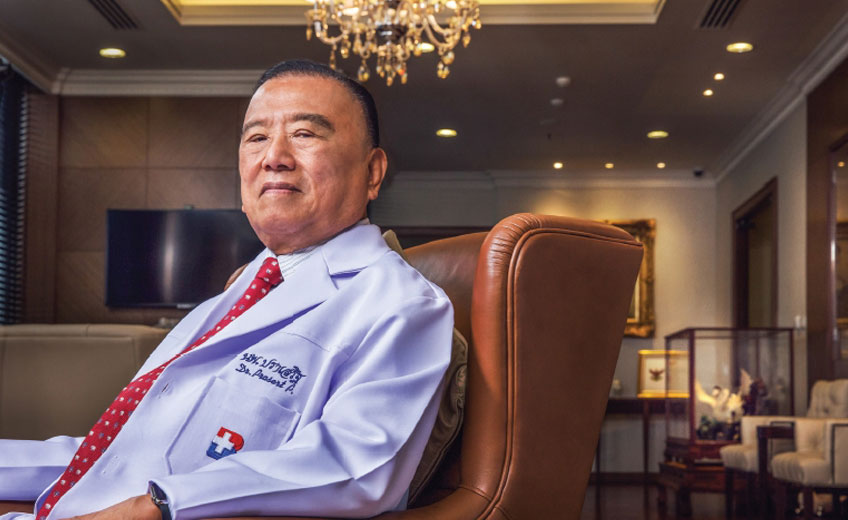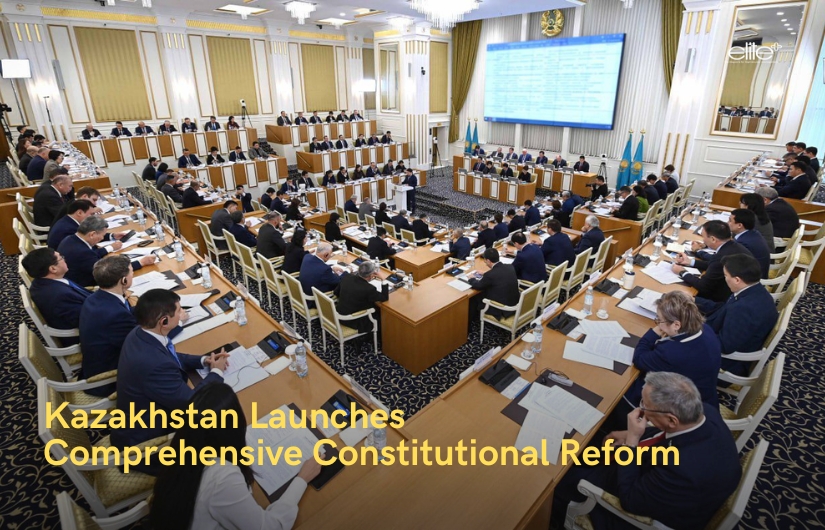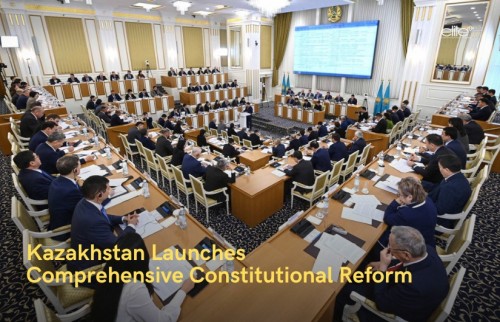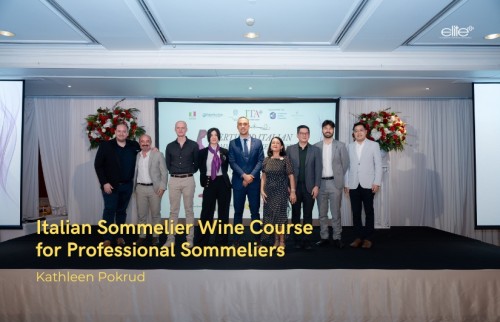Dr Prasert Prasarttong-Osoth, now president of Thailand’s largest private health care group and CEO of Thailand’s first privately owned airline,began his career in medical school. He pursued a doctorate from the Faculty of Medicine at Siriraj Hospital and became a surgeon at the same hospital. Five years later he grew discouraged by the need to constantly absorb piles of textbooks in order to rise to the top of the field.
An interest in tourism influenced Dr Prasert to found his own business –the private airline Bangkok Airways and the first private airport on Koh Samui. Unexpected obstacles in the airline business, however, helped guide him back into the medical industry.
The founder of Bangkok Hospital, Dr Prasert is now CEO of Bangkok Dusit Medical Service PLC (BDMS), a health care service group that is the largest shareholder of many leading hospitals in Thailand including Samitivej, BNH, Phyathai and Paolo Memorial. According to an annual ranking conducted by Money & Banking magazine and the Faculty of Commerce and Accountancy, Chulalongkorn University, he was the wealthiest investor in the Thai stock market for the second straight year in 2014. Likewise Forbes magazine earlier this year ranked him as Thailand’s eighth richest person, with a net worth of US$2.8 billion.
Elite+ spoke to Dr Prasert about his successes and the future course of the business in a rapidly changing region.
- You are ranked as the richest investor of the Thai stock market…
I wouldn’t say I’m a real stock trader. The shares in the Thai stock market that I hold belong to our company group, such as in BDMS. We do not invest in other shares. Originally BDMS was Bangkok Hospital, but as we earned more capital we bought some shares from Bumrungrad and all shares from Phyathai and Samitivej hospitals. It could be called a stock investment, and we are merging the health care businesses into one company.
- What is the key to administrating hospitals under BDMS?
We won’t interrupt the culture or dominate the internal affairs of each hospital. To give you an example, there are four branches of Phyathai and another four of Paolo Memorial Hospital; we let all eight branches administrate themselves individually. What we’re concerned about is making sure that ultimately they follow our main policies. As they belong to the same company, we provide financial support as well as equipment and manpower to the hospitals. Hospitals in our group can be compared to houses in the same family. We are merging them into one community where they can share the common space. That’s how to get the most out of our medical equipment and human resources. In the past, each hospital invested in these resources separately and they could not maximize their use, resulting in profit loss. Medical specialists are also able to be translocated among hospitals in the group to ensure that effective treatments from experts apply to all patients. These factors have helped ourhealth care business flourish.
- The ASEAN Economic Community will start at the end of the year. How do you see Thailand’s role as an international medical hub?
The ASEAN region is a market that BDMS is penetrating. Among the 10 members, so far only Thailand and Singapore have sufficient ability to support health care services for the population of the community. We need to improve language skills of our staff, at least in English as the official language. It would be even more beneficial if they can communicate in neighbouring languages, especially Burmese. The majority of foreign patients currently come from Myanmar, as the policy to shut itself off for so long kept their medical technology from advancing as quickly.
- Have you invested in any health care centres in neighbouring countries?
We set up a few hospitals in Cambodia and Laos. But ultimatel your strategy is to establish Thailand as a hub providing health care servicesto foreigners. We’ve found that setting up hospitals in foreign countries entails challenges such as the communication barrier and inadequate use of equipment that doesn’t cover costs. It is more efficient to gather advanced technology devices in a hub and provide medical services for patients throughout the region through this centre.
Inconsistent regulations in countries such as Myanmar are also a factor discouraging us from investing in hospitals abroad. Even though several international agreements allow for the free movement of skilled labour, in reality the policies of organisations will restrict agreements to put that into practice. To give an example, an ASEAN treaty lets doctors, dentists, accountants and architects work across member countries. Nevertheless, the domestic federations of professional associations such as the Medical Council of Myanmar will restrict the employment of overseas medical staff. I think it will take time before skilled workers are really allowed to move freely.





































































































































































































































































































































































































































































































































































































































































































































































































































































































































